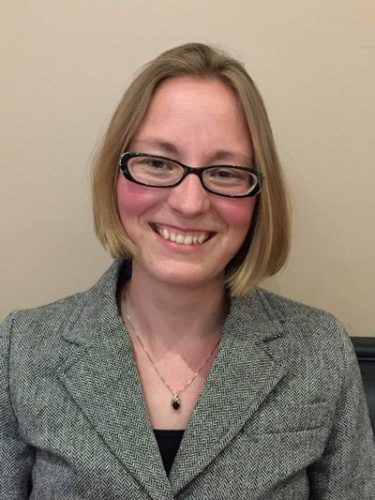
Two new and relatively unknown candidates, Sonya Carlson and Gary Malone, will be on the May primary ballot for James Manning’s Eugene Water and Electric Board seat. Manning’s term is up, but he is not seeking re-election. Instead, he is running against Julie Fahey in the Democratic primary to fill the open position in House District 14, left by Val Hoyle who is running for secretary of state.
The EWEB position on the ballot represents city Wards 6 and 7 in northwest Eugene.
Carlson and Malone have distinctly different backgrounds and experience, but both candidates favor keeping rates down for low-income EWEB customers while developing alternative energy sources, conserving water and power resources, building resiliency and protecting the environment. Both candidates advocate for developing a secondary source of water for Eugene, which currently relies on the McKenzie River.
Carlson is running a more active campaign, securing more than two dozen endorsements, including Sen. Lee Beyer, Reps. Phil Barnhart and Paul Holvey, EWEB Commissioners Steve Mital and Dick Helgeson, Mayor Kitty Piercy, four city councilors, the Eugene Area Chamber of Commerce, the Democratic Party of Lane County and the Graduate Teaching Fellows Federation at the UO.
Malone has only a few endorsements so far, but those include Manning, the current commissioner he seeks to replace, County Commissioner Pat Farr and former EWEB commissioner Rich Cunningham.
Malone is doing a mass mailing to Wards 6 and 7 with the message, “EWEB needs a commissioner with experience and knowledge of current issues in the changing energy markets, and a leader who will fight for clean water and affordable electricity.”
Malone has more practical experience in the energy world. He was a boiler technician in the Navy, has an associate degree in stationary engineering, was a control room operator at Biomass One in southern Oregon and is currently a co-generation engineer at the UO Central Power Station.
He has also served two terms as president of the Classified Employees Union and as chief steward, shop steward and general council delegate while at the UO. On the side, he and his wife own a PostNet shipping, printing and mailbox franchise in northwest Eugene. He would continue to work full-time at UO if elected.
Carlson has a more academic, nonprofit and political background. She studied economics and public policy at Lewis and Clark College and has gone back to school at UO.
She is valedictorian of her soon-to-graduate MBA class with a focus on sustainability. Her studies have included a technology entrepreneurship fellowship.
Carlson is also involved in Habitat for Humanity, Loaves and Fishes and other local causes and projects. She is currently on staff with Steve Mital as a graduate fellow at the UO Office of Sustainability but plans to resign if elected, Carlson’s position as a graduate fellow in the UO’s Office of Sustainability ends in June when she graduates and if elected she would not be working for Steve Mital during her term as EWEB Commissioner. The UO is EWEB’s largest customer.
Previously, Carlson worked for five years for Rep. Barnhart and was involved in policy-making decisions regarding energy, taxation and other major issues. She says she learned a “broader perspective on how you build partnerships and work with other groups.” She was also special projects coordinator for the nonprofit Corporate Ethics International.
“I recognize that I may have less technical skill than the other candidate,” Carlson says. “What I lack in hands-on operation experience, I more than make up for in my ability to learn, passion to make decisions that match the values of the community, and willingness to reach out to other experts and ask tough questions.” Additionally, she tells EW, “I have years of experience setting policy, building coalitions and speaking in public.”
The two candidates differ on their views of the Seneca biomass incinerator. Malone worked in biomass for 12 years and says such co-generation is “a useful part of a well-rounded renewable energy portfolio,” and “a wood-fired plant can power hospitals and emergency services” if needed. He says biomass incinerators produce very little pollution, not enough to be of concern.
Carlson says, “I have asthma myself and am sympathetic to concerns about air pollution.” She notes that “all sources of energy have some environmental considerations that we should continue to find and push for solutions, but none are perfect. For this reason, I will use the best science available to advocate for solutions that protect vulnerable populations and have the smallest environmental impacts.”
The race has become more political than usual for EWEB positions, mostly because of Carlson’s active campaigning.
“I’m younger, I’m female and I’m a student, and I know those things can stack up against you in a race like this, and it’s a race where not many people know much about the campaign,” she says. “People don’t even know
EWEB is a board you run for. If I’m going to have a chance at this seat, I need to get out there and get support.”
She adds, “Having a female perspective would be helpful, and diversity on any board is actually a benefit. Many studies have shown that if you have a diversity of perspectives you miss fewer opportunities, you look out for different constituencies and find more creative solutions.”
Both candidates have websites providing more information on their backgrounds and positions. Carlson’s can be found at goo.gl/OH4rCI, and Malone’s at votegarymalone.com.
This story has been updated.